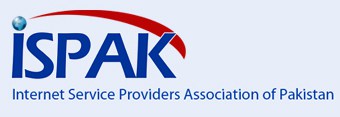About Ispak
In early days of Internet in Pakistan, PTCL did not have any infrastructure to deliver sub rate (less than 2 Mbits) bandwidth to the ISPs. So ISPs were forced to invest in their own hardware whether it was a digital cross connect installed at PTCL exchanges or Radio Modems from Exchange to ISP premises all at the expense of ISPs.
PTCL, being a state owned monopoly, was the only telecom infrastructure provider in the country and ISPs faced a very rough and tough time in getting the infrastructure approved and acquired from PTCL which was too much shy in offering such facilities to the private sector operators. PTCL in monopoly days feared that Internet would open a back door to eat up their revenues and the nascent companies would be a threat to PTCL’s retail business.
Sensing the imminent threat when no policy and decision maker was willing to listen to the new and emerging ISP industry, ISPs from all cities of Pakistan got united and ISPAK was formed. Since then ISPAK represented ISPs, data service providers and fixed line operators industry of Pakistan at numerous national and international forums including PTA, PTCL, Ministry of Science & Technology, Ministry of IT & Telecommunications, PEMRA, etc.
Unlike multinational cellular operators, ISP industry comprised of many start-ups formed by young Pakistani entrepreneurs. ISPAK therefore has always been very vocal and at forefront for the rights of Pakistani Internet community in general and Internet industry in particular. ISPAK has been instrumental for many reforms in ranging from bringing down the Internet prices in the country to improvement in speed and quality by fostering competition.
The sole source of Internet bandwidth in Pakistan till 1999 was satellite and PTCL provided this connectivity from its two satellite earth stations at Islamabad and Karachi. Satellite bandwidth was very expensive and one 64 kbps link costed around US$8,000 per month for full circuit including IP port. In late 1999, Pakistan was first time connected with international submarine cable, SMW3 and PTCL started offering commercial services on SMW3 in 2000.
ISPAK’s struggle has resulted the Internet bandwidth prices offered by then incumbent, i.e., PTCL to come down to $1,600 per 2 Mbits per month in 2002-04 from an astronomical high figure of over $80,000 back in 1995-99. This resulted in reduction of dialup Internet prices from Rs. 100.00 per hour to average price of Rs. 5.00 per hour.
In 2002, broadband was first introduced in Pakistan over DSL (digital subscriber line) using PTCL’s copper infrastructure. Telecom De-regulation Policy of 2004 opened up telecom infrastructure to private operators and new service providers emerged using FTTH, WiMax, HFC, etc. Narrow band dialup slowly died and broadband took over. PTCL’s monopoly over international submarine cables also ended in 2008 when TWA brought alternate submarine cable to Pakistan. Since then, wholesale IP bandwidth in Pakistan had duopoly with two operators have capacity in six submarine cables connecting Pakistan with rest of the world.
Although lot have positively changed in telecom sector in Pakistan since early days of Internet which was the first deregulated service in 1995, the strong arm tactics and anti-competitive moves of incumbents and dominant players still continue. Fixed line telcos faced many roadblocks like high costs of right of way (ROW), excessive taxation, red tape and bureaucratic process of regulators and policy makers, high cost of Internet bandwidth, draconian cyber crime laws, excessive Internet regulations, and so on. ISPAK’s struggle therefore continues to ensure a level playing field, openness of Internet, making it cost effective, competitive and better quality at par with global standards.
